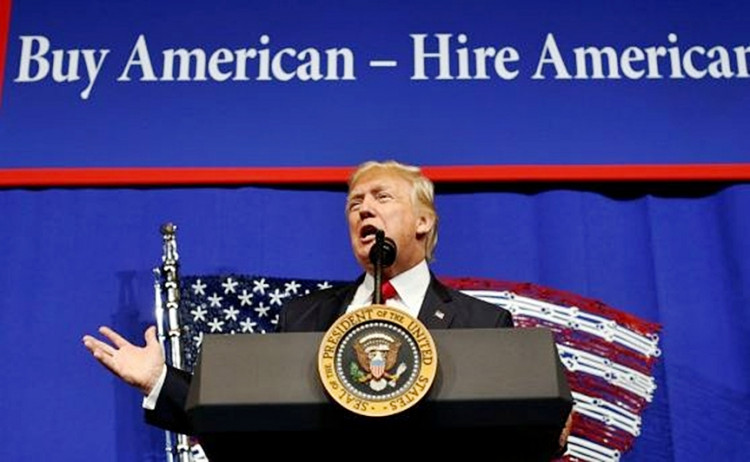It's almost official. U.S. President Donald Trump has all but admitted he'll go ahead with his threat to impose 25% tariffs on a wide range of goods made in China -- including Apple iPhones -- and the only thing Chinese President Xi Jinping can do to stop it is to give in to all of Trump's demands.
And that won't happen.
Speaking to American media, Trump yesterday said he expects to raise tariffs to 25 percent (from the current 10 percent) on $200 billion worth of Chinese imports. He also repeated his threat to slap tariffs on all remaining imports from China.
Trump's threats came just four days before he meets with Xi in Argentina at the G20 summit, and does not bode well for the success of talks to end or mitigate the damage from Trump's trade war.
Trump said it was "highly unlikely" he'll accept China's request to postpone the tariff hike, which will take effect on Jan. 1, 2019.
"The only deal would be China has to open up their country to competition from the United States," according to Trump.
Trump also said that if negotiations are unsuccessful, he'll go ahead and heavily tax China's remaining imports. He declared that if he and Xi don't make a deal, "then I'm going to put the $267 billion additional on." The tariff rate, in this case, will be either 10 percent or 25 percent.
More bad news for China: Trump said the next round of tariffs will also tax laptops and Apple iPhones imported from China. These electronic devices are part of the $267 billion lists of goods not yet hit by the new tariffs.
The Trump administration has refused to levy heavy tariffs on smartphones and computers to minimize anger among American consumers. Media reports confirm the Trump administration remains very worried about a consumer backlash to tariffs that will considerably raise the prices of popular electronic devices.
"Maybe. Maybe. (It) depends on what the rate is," said Trump on the possibility of tariffs on smartphones and laptops.
In response, China has again refused to use Trumpian bombast to answer Trump's statements. One high-level Chinese official who chose to remain anonymous told Chinese state-owned media that both Xi and Trump will look to set guidelines for future talks when they meet in Argentina.
The official said the main issue is how to settle down the trade war. He said he remains conservatively optimistic this ceasefire can be achieved. In the same vein, China's Ministry of Foreign Affairs said China hopes both sides can still work towards a "positive outcome" from the meeting at Argentina.






